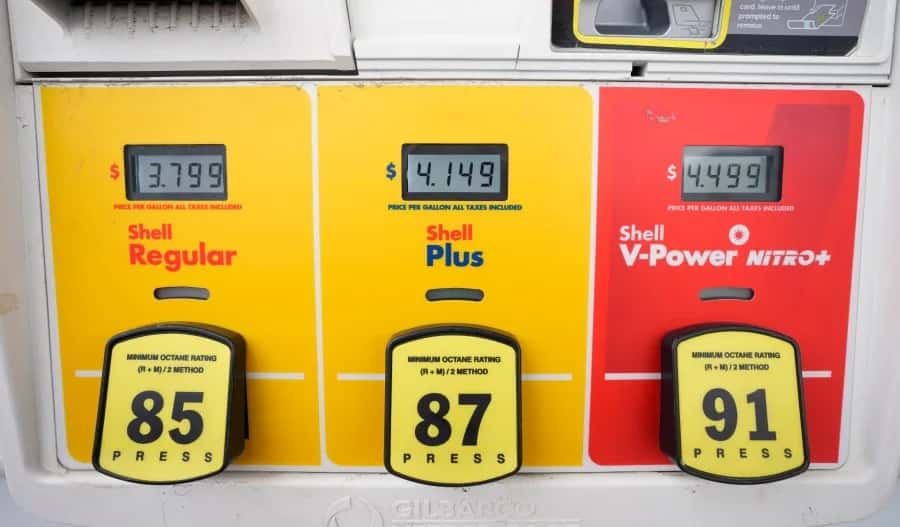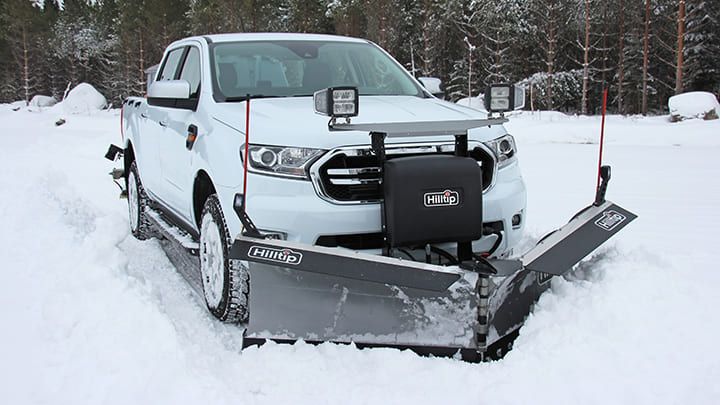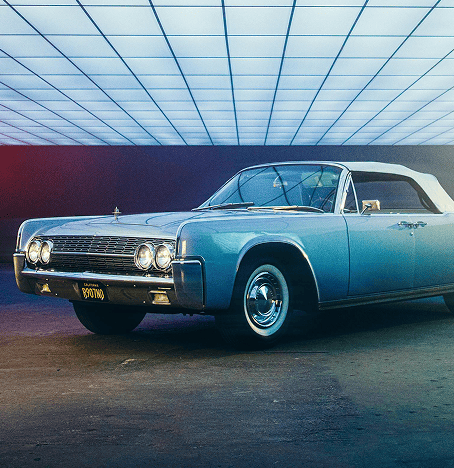A Comprehensive Guide to US Gasoline Octane Ratings

When you stop at a gas station in the United States, you are often faced with three choices for your car: regular, mid-grade and premium. All of those have their own octane number, the higher the octane number, the less chance of knocking or pinging in the fuel. Knowing how the octane rating system is structured in the United States and how that stacks up on an international scale can inform you of which fuel is right for your car.
Understanding Octane Ratings
The octane rating matters, because it's a measure of how much the gasoline can be compressed before it ignites on its own. A higher octane fuel is used, making the fuel less susceptible to predetonation or knocking that can damage the engine. In the US, typical numbers are used: the PON, which is an average of the RON and the MON. Frequently this is called the Anti-Knock Index (AKI) which is (RON + MON) / 2.
1. Popular Variants of Gasoline and Their Octane Numbers
l Regular Gasoline: This is the most widely used fuel which has an octane rating of 87. Fits most cars and is the least expensive.
l Mid-Grade Gasoline: Mid-grade gasoline with an octane rating of 88 to 90. It saves as a middle ground for vehicles that might desire bit more octane than they can get with normal fuel but wouldn't go for the highest rated octane available at the gas station.
l Premium Gas: This gas has an octane rating of 91-94 and is ideal for sports cars or vehicles with high-performance engines with high combustion ratios. Now these engines do need the higher octane, to prevent detonation at peak performance.
2. US vs International Octane Ratings
Anyway, let me point out that the US octane rating system is not the same as in most other countries. In the US, generally the RON is used in vehicle specifications from 1940s to until sometime around early 2000s. Many other countries use the RON system. This can be a source of confusion as octane ratings are usually posted based on the (R+M)/2 method. A 98 RON gasoline in Europe would correspond to a 93 PON in the US.
3. Impact on Vehicle Performance
So when does using the correct octane make a difference for your car? Most cars on the road today are running on what is commonly known as regular gasoline, which as an octane of about 87. But some high-performance cars and vehicles with turbo-charged engines also may need higher octane rated fuels to prevent knocking and promote optimal performance. Choose a lower octane number than your car should run, and instead risk leaving a couple of miles a gallon on the table up to the next well grade due to the lower energy content of the gasoline (or, possibly, depending on manufacturer policy, violate the warranty on the car).
4. Choosing the Right Fuel
The surest and safest way to know what octane level your car needs is to consult the owner's manual. This will give you a concrete answer on what octane your engine wants. And, although in most cars you won't damage an engine by running a higher-octane fuel than it's been configured to use, in practice there's no reason to bother doing so (that higher-octane fuel won't necessarily give you any better performance).
Overall, it certainly can't hurt to understand what the US gas octane rating scale means relative to those of other countries the next time you pull up to a pump. Or, using the right octane could prevent you from overpaying, potentially damaging the engine, or not getting the best performance out of the engine.
 Disclaimer:
Disclaimer:
The content provided on our blog site traverses numerous categories, offering readers valuable and practical information. Readers can use the editorial team’s research and data to gain more insights into their topics of interest. However, they are requested not to treat the articles as conclusive. The website team cannot be held responsible for differences in data or inaccuracies found across other platforms. Please also note that the site might also miss out on various schemes and offers available that the readers may find more beneficial than the ones we cover.
Related Websites
-
 Travel
TravelLast-Minute Vacations at the Best Prices
The concept of impromptu travel can seem very appealing in the fast paced modern world. If you are looking to get away from the day to day, to recharge your batteries or even just todiscover a new place, then a last-minute vacation might be just what you are looking for.However, with the right strategies, you can score amazing deals and ensure your spontaneous trip is one to remember while keeping costs low. Here's how to book a last-minute vacation on a budget.1.Be Open to Your DestinationBeing flexible is the most important thing when looking to get the best last minute deals. Think in terms of a spectrum of destinations rather than a single location. Use flight comparison tools like Google Flights, Skyscanner or Kayak to help you explore options based on price instead of place. These give you “explore”features that show you the cheapest flights to various places so you can pick a destination within your price range. Last-minute popular destinations include cities that always seem to have flight deals, like Las Vegas and Cancun or European capital cities like Lisbon or Budapest.2.Travel During Off-Peak TimesWhen it comes to saving money, timing is everything. Last-minute vacations on the off-seasons or mid-week, for example, can save a traveler tons of bucks. Airlines, hotels and tour operators often cut prices to fill empty seats and rooms in off-peak times. For instance, a trip to tropical locations in the rainy season or a ski destination in late spring will often come with reduced prices. Flying on Tuesday or Wednesday is also generally less expensive than flying on weekends.3.Use Last-Minute Deal WebsitesSeveral sites specialize in last-minutetravel deals. Platforms like Lastminute.com, Expedia's “Last-Minute Deals”and Priceline's“Express Deals”focus on package deals for discounted flights and hotels as well as car rentals. Subscription services such as Scott's Cheap Flights or Secret Flying also ping you when flash sales and error fares appear — a good way to snag an unbeatable deal.4.Look into Different Types of AccommodationsHotels get all the publicity,but alternatives like Airbnbor Vrbocan save you big, particularly on last-minute bookings. Most hosts reduce their prices to fill up any space, and you might stumble upon unique places to stay for a fraction of the price. And there are house-sitting platforms such as TrustedHousesitters where you can stay in someone's home for no cost in exchange for looking after their pets or property.5.Pack Light and Be Ready to GoAnother great thing about last-minute travel is that it forces you to pack quickly and efficiently. Heading out with nothing but a carry-on helps you avoid luggage fees and makes it easier to take advantage of last-minute flight deals. Have travel documents, toiletries, and a flexible wardrobe packed and ready to go so you can book and leave in hours.6.Use Points and MilesIf you've been hoarding credit card points or airline miles, a spur-of-the-moment vacation is a great opportunity to cash them in. Most loyalty programs allow for last-minute redemptions, and you may have more options for award seats or hotel rooms available during off-peak times. Look at your accounts to see if you can pay for part, or all, of your trip with points.7.Book Activities in AdvanceAlthough the fun of spontaneity is a tube ride or bus tour away, scheduling important activities or tours in advance can save you money and prevent you from missing must-see destinations. Search for discounted tickets on sites like Viator or GetYourGuide, or look up city passes, which package multiple attractions at a discount.So in summary, a last minute trip doesn't have to cost the earth or be overly stressful. With some flexibility, research and creativity, you can score amazing deals and create memorableexperiences. So why wait? Today, start planning your spontaneous getaway and jump at the best deals you can get. -
 Health & Wellness
Health & WellnessReasons of the Appearance of the of Kidney Stones
Kidney stones (or renal calculi) are hard deposits of minerals and salts that develop in the kidneys. They can be stunningly painful, especially if they go downstream in the urinary tract. Causes of kidney stonesis associated with various factors such as the dietary habits, lack of water and medical preference to genetic reason.1.DehydrationInsufficient fluid intake is the most common cause of the formation of kidney stones. When the body is short on water, urine gets more concentrated, which lets pack minerals and salts together into crystals that form stones. Those at highest risk are people who live in hot climates and those who exert themselves physically without drinking enough water. Proper hydrationdilutes stone-forming constituents in the urine and dehydration is a common modifiable risk factor.2.Dietary FactorsKidney stones are largely developed due to diet. Consuming foods high in oxalates — including spinach, nuts and chocolate — can raise the risk of forming the most common type, calcium oxalate stones. Too much salt (sodium) in your diet is another, as it also causes calcium to leak into the urine, where it causes stone formation. An animal protein-rich diet —red meat, poultry and seafood — can elevate uric acid levels and diminish citrate, a compound that prevents stones. In contrast, a balanced diet with fruits, vegetables and whole grains can lower the risk.3.Medical ConditionsSome health conditionscan put you at risk for kidney stones. For instance, hyperparathyroidism — an excess level of hormone by the parathyroid glands — is associated with elevated calcium in the blood and urine, which in turn, can promote stone development. Other diseases including urinary tract infections (UTI), gout and inflammatory bowel disease (IBD) can also cause kidney stones. Metabolic disorders, such as cystinuria, which causes a large amount of cystine to be excreted in the urine, can also lead to rare stone types.4.Genetic PredispositionA major risk factor for kidney stones is family history. There is also an increased chance of developing stones if a close relative has had them. Some people may have a genetic predisposition to stone-formation as a result of abnormal handling of minerals and salts. Some inherited conditions, such as renal tubular acidosis or primary hyperoxaluria, can directly cause kidney stones.5.Obesity and Lifestyle FactorsYour metabolic disorders lead cause changes in hypotonic body fluids that change crystallization, so you have higher risk of kidney stones. Excess body weight is associated with increased uric acid and calcium in the urine, all of which are factors that can contribute to the formation of stones. Lifestyle-related factors such as a lack of physical activity and unhealthy eating patterns commonly aligned with obesity only deepen that issue. Following regular exercise and healthy food can lower that risk considerably.6.Medications and SupplementsSome medications and supplements can elevate your risk of kidney stones. For example, excessive calcium or vitamin D supplements can result in high urine calcium. Diuretics — drugs often prescribed to people with high blood pressure — can lead to dehydration, which raises risk for stone formation.Likewise, antacids that contain calcium can lead to the same problem in higher doses. Reduces risks by taking medication and other supplements in consultation with a doctor7.Urinary Tract AbnormalitiesStructural issues in the urinary tract, including narrow ureters or kidney cysts, can restrict the flow of urine and promote stone formation. Urine that stagnates makes it more likely for minerals and salts to crystallize and develop stones. Congenital conditions or prior surgeries that involve the urinary tract can also raise risk.In general, kidney stones are a common, often painful disorder caused by multiple factors. Being aware of what these causes are can empower you to take action and lower your risk. Drink enough fluids, eat properly, control disease conditions like diabetes, and lead a healthy lifestyle, all help to prevent kidney stones.If you have a family history or other risk factors, it's essential to consult a healthcare professional for personalized guidance. -
 Finance
FinanceChoosing the Best Financial Adviser: A Guide to Securing Your Financial Future
With time going by, one's financial goals become more and more complex, therefore, we need someone professional to help us manage our finance. A financial adviser can help, whether you're planning for retirement, saving for a big purchase or investing for long-term growth. Not every financial adviser is created equal, though. Here's a complete guide to choosing a financial adviser who is best suited to your needs.1.Familiarize Yourself with Your Financial GoalsThe first step toward finding a financial adviser is to clarify your financial goals. Do you want to build wealth, pay down debt, or save for retirement or your child's college education? Different advisers will have different specialities, so if you're clear on what you want to achieve this will help you think about what types of people you might need. If retirement planning is your priority, you will want an adviser who specializes in pension plans and long range investing strategies.2.Verify Credentials and ExperienceThe credentials a financial adviser has and how many years of experience they have in the business are important markers of expertise. Seek certifications such as CERTIFIED FINANCIAL PLANNER (CFP), Chartered Financial Analyst (CFAs), or Certified Public Accountant (CPAs); These designations require substantial training, and there are professional standards behind them, but no bar exam or certification as there is in law. Also, ask how long the adviser has been in the industry. The healthier the body, the more capable you are of developing muscle, realizing that your new actions and the fat burning process soon are the results of habit and time.3.Evaluate Their Fiduciary DutyA fiduciary, by law, is required to act in your best interest — putting your needs ahead of their own. That means they put your best financial interest ahead of the commissions or fees they might earn. Always ask if the adviser is a fiduciary and, if necessary, ask for written confirmation.4.Get a Grip on Their Fee StructureFinancial advisers may be compensated in a number of ways, but the most common are fees, commissions or a mix of the two. Flat-fee, hourly or percentage of assets under management fee-only advisers may be less prone to conflicts of interest. Commission-based advisers earn their money from selling financial products, and their sales may not be in your best interests. Ask about their fee structure upfront and make sure that it's clear and reasonable.5.Check out Their Communication StyleGood communication is paramount to a successful adviser-client relationship. Your adviser should be able to distill complex financial concepts in an understandable way. They should also be available and responsive to your questions and concerns. In those initial meetings, look at whether they listen well and if they personalize advice to your particular circumstances.6.Check out Reviews and Ask for ReferencesWhen choosing a financial adviser, reputation matters. View the online comments or testimonials, or ask for references and suggestions from previous clients. This can help you judge whether they are reliable and professional. Don't be shy about requesting case studies or other examples of how the adviser has worked with clients with similar financial goals.7.Trust Your InstinctsFinally, listen to your gut feeling. Choosing a financial advisor that meets your standard and makes you satisfied is very important, because he or she determines how your financial conditions operate. If something doesn't feel right with your experience it's just fine to continue looking until you meet people who you connect with.In short, hiring a financial adviser may be one of the most important decisions you ever make in the course of managing your finances successfully. Knowing your goals, researching credentials, verifying fiduciary duty and testing communication styles will help you find an adviser that aligns with your needs and values. Take your time, ask a lot of questions and remember that the right adviser will do more than help you manage your money, they will empower you to reach your full potential financially.
Featured Articles
-
 Health & Wellness
Health & WellnessEssential Steps During a Depressive Episode
-
 Home & Garden
Home & GardenMemory Foam Mattresses Bring You Lots of Benefits
-
 Health & Wellness
Health & WellnessHeavy Sweating: Heat or an Issue with Health?
-
 Automotive
AutomotiveThings to Pay Attention to When Choosing a Truck Plow Attachment
-
 Automotive
AutomotiveHow the Cadillac LYRIQ Stands Out in the Luxury Electric SUV Market
-
 Travel
TravelPlanning Your Dream Honeymoon: A Journey to Remember
-
 Automotive
AutomotiveThe Modern Pickup: A Buyer's Guide to Finding Your Perfect Match
-
 Finance
FinanceTypes of Loans: A Comprehensive Guide








